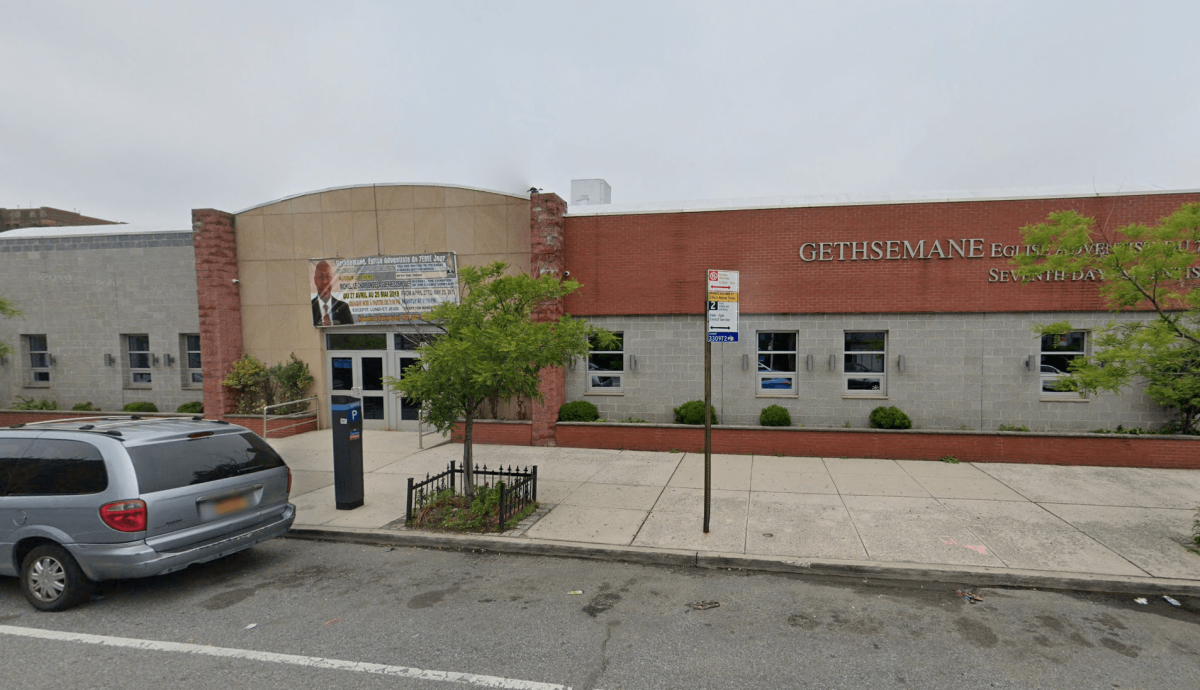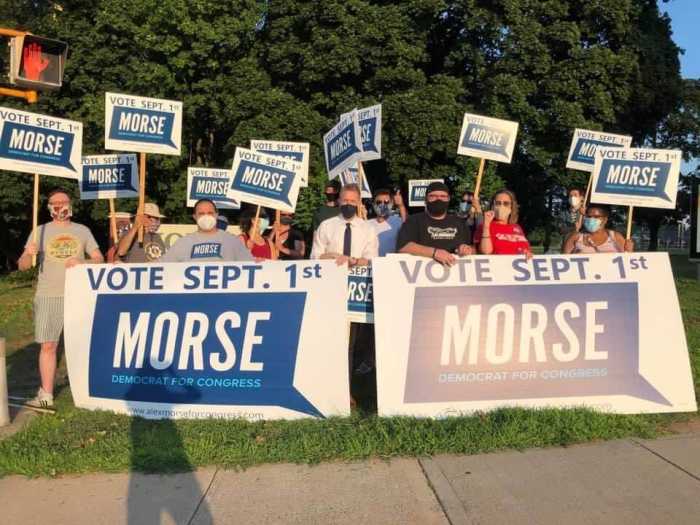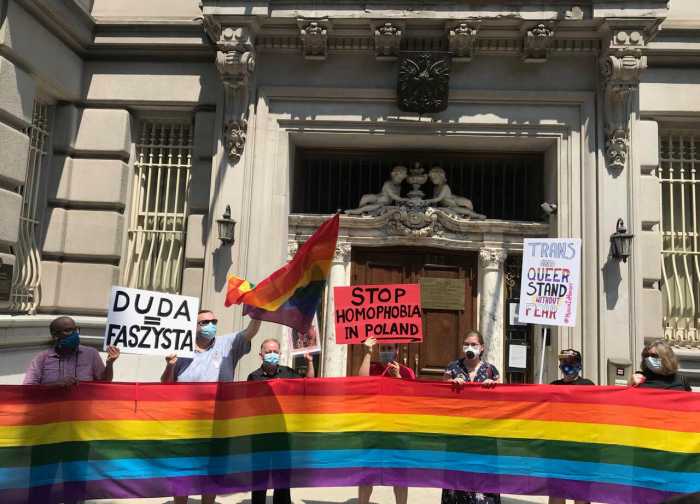Is a false charge of homosexuality defamatory?
A lawsuit involving a Brooklyn pastor who drove out a church member by falsely labeling him as a gay man who watched porn on church computers prompted a New York court to revisit that question.
The case arose from a dispute between Pastor Jean Renald Maurice of the Gethsemane Seventh Day Adventist Church in Brooklyn and one of the elders of the church, Pierre Delor Laguerre. The court’s opinion by Justice Sheri Roman does not make clear what their dispute was about, but Laguerre’s complaint reports that Pastor Maurice stated that “if the plaintiff ‘did not submit to him,’ Pastor Maurice would ‘crumble’ the plaintiff.” Maurice allegedly threatened to tell the congregation that Laguerre is a homosexual who used the church’s computer to watch gay pornography in order to get the congregants to vote to remove Laguerre from his position as elder and to cancel his membership in the church, which is located at 357 Empire Boulevard.
Laguerre allegedly refused to submit to Pastor Maurice, who carried out his threat by making these statements during a congregational meeting attended by about 300 people. The ensuing uproar resulted in Laguerre being removed as an elder and expelled from membership. Presumably, the position of church elder was not compensated because Laguerre did not allege in his complaint that he was harmed financially by Pastor Maurice’s statement.
Laguerre filed a lawsuit in New York Supreme Court in Brooklyn, claiming that Pastor Maurice’s statements were defamatory per se. His claim relied on a 1984 decision by the 2nd Department, Matherson v. Marchello, which recognized the old rule and had not been overruled. As of 1984, all four New York appellate departments had decisions agreeing that a false charge of homosexuality was defamatory per se.
A defamation claim seeks to hold a speaker or writer financially responsible for the harm cause by their false statements about people. The essence of defamation, as the word suggests, is a statement that inflicts injury on the person who is the subject of the statement by attacking their reputation and impairing their ability to function in society. Courts have traditionally treated some statements as so automatically harmful that the court will presume that they will cause such harm, including economic harm. This is referred to as “defamation per se.”
Courts have long treated a false statement that somebody is gay as such an automatically harmful statement — in light of criminal laws against gay sex and widespread discrimination — but in this case, the New York Appellate Division for the 2nd Department, based in Brooklyn, became the second appellate division court in the state to hold that falsely calling somebody gay is not automatically so harmful.
In 2012, the Albany-based 3rd Department of the Appellate Division abandoned the old rule in a case called Yonaty v. Mincolla, but that decision was binding only on courts within the upstate 3rd Department. The state’s highest court, the Court of Appeals, has never issued a decision on this subject, and until December 23 neither of the other Appellate Division departments had done so.
Pastor Maurice asked the trial court to dismiss the case, noting the 3rd Department’s Yonaty decision, but the trial court was bound to follow 2nd Department precedent and refused to dismiss the case. Pastor Maurice’s appeal to the 3rd Department gave that court an opportunity to bring their defamation law up to date.
Finding the reasoning of Yonaty v. Mincolla to be persuasive, the 2nd Department now holds that Matherson v. Marchello and the earlier cases that it had cited “are inconsistent with current public policy,” wrote Justice Roman. “This profound and notable transformation of cultural attitudes and governmental protective laws impacts our own consideration of stare decisis,” she wrote.
The court recited a litany of legal developments since 1984, particularly noting the Supreme Court’s 2003 decision in Lawrence v. Texas striking down as unconstitutional a Texas statute outlawing gay sex and that Court’s 2015 decision, Obergefell v. Hodges, finding a constitutional right for same-sex couples to marry. The court also noted that New York State has banned sexual orientation discrimination in employment, housing and public accommodations since 2002, and that the state enacted its own marriage equality law in 2011, several years before the Obergefell decision.
The court concluded that it is no longer true that falsely calling somebody gay can be presumed to be so harmful to their reputation as to cause economic injury. If it is not defamation per se, that means that the plaintiff has to include in his complaint factual allegations of actual financial harm caused by the defamation, referred to by courts as “special damages.” A complaint that lacks such allegations must be dismissed, so the Appellate Division sent the case back down to Brooklyn Supreme Court with directions to dismiss the lawsuit.
The court rejected two other arguments that Pastor Maurice made. He argued unsuccessfully that his constitutional right to free exercise of religion shielded him from any liability for defamation, since his dispute with Laguerre arose out of church business, but that didn’t fly with the court. Neither did his argument that his comments to the congregation fell within the doctrine of “common interest” privilege, which allows people to make defamatory statements to others with whom they share a commonality of interest. Such “privileges” can be lost when they are abused, and the court found that the privilege would not apply in this case because Pastor Maurice made the statement with “malice,” a term of art in defamation law for situations where the speaker knows he is uttering an untrue statement that is harmful or does so with reckless disregard as to whether it is true.
There is something else noteworthy about the four-judge panel that decided this case: all of the judges are women. This is another sign of how the times have changed since the 2nd Department’s earlier decision in 1984, when the typical New York appellate division panel would be all-male. As of 1984, the 2nd Department had only one female judge. That year, Judith Kaye became the first woman to be appointed to the state’s Court of Appeals.
To sign up for the Gay City News email newsletter, visit gaycitynews.com/newsletter.




































